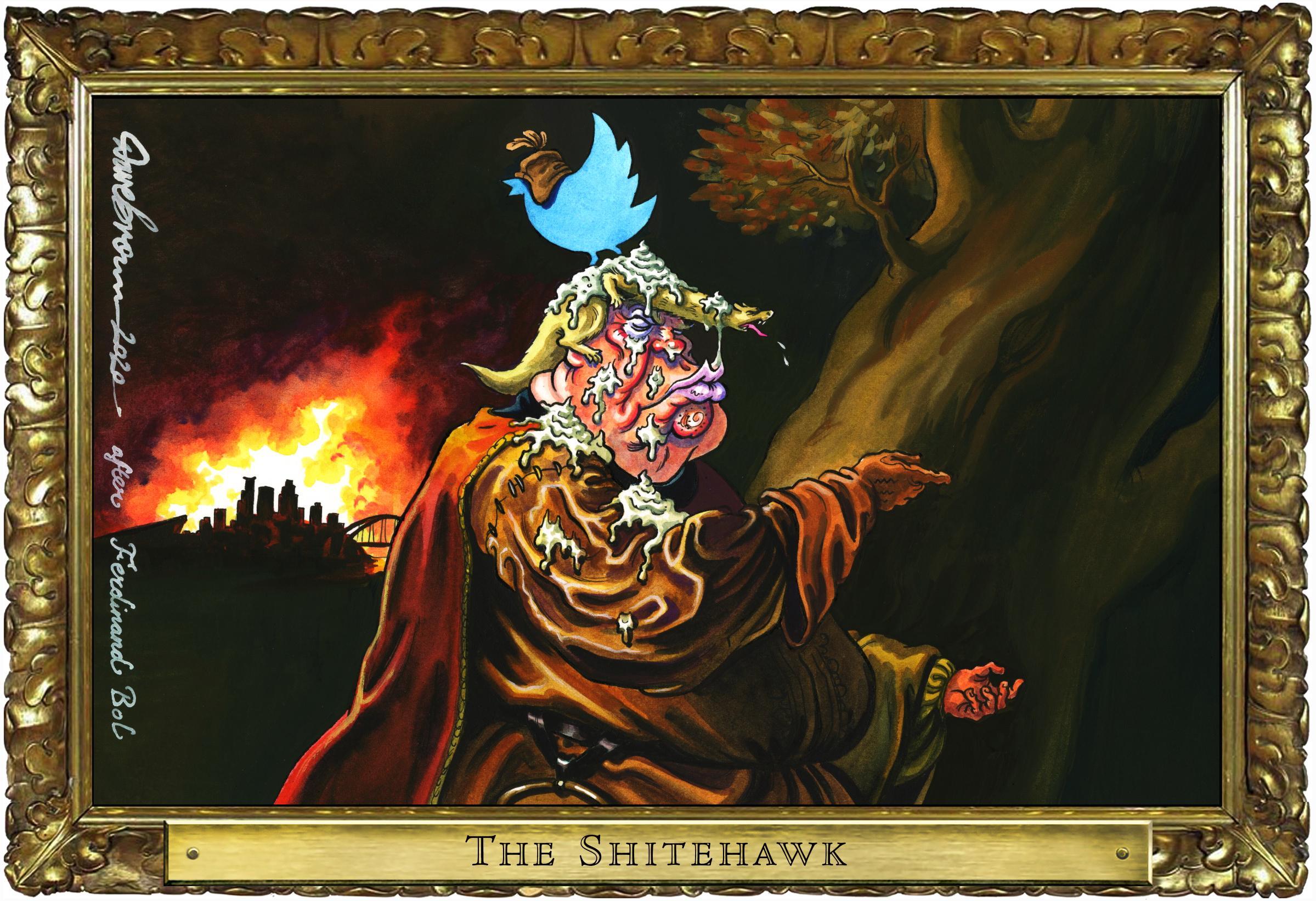After George Floyd’s death, President Trump entirely misjudged the moment, and it may cost him
Editorial: Trump was never one of life’s peacemakers but his weaknesses of character are especially evident when sensitivity and care are so badly needed

It is at moments such as this that an American president can use the dignity and power of office to bring people together, to calm tempers, to reconcile and, indeed, intervene to make things better.
But not this one. Donald Trump’s reaction is to start a fight with Twitter, label protesters as “thugs” and threaten to call in the National Guard. His reaction to events in Minneapolis has a grim echo of the way he behaved when racists clashed with democrats in Charlottesville, Virginia, in 2017.
Then, as now, civil disturbances carried racial tension, and President Trump entirely misjudged the moment, drawing a misguided moral equivalence between both sides’ “very fine people”. President Trump was never one of life's peacemakers, and his weaknesses of character are especially evident when sensitivity and care are so badly needed.
The killing of George Floyd by police and the subsequent riots have left Minneapolis resembling a post-apocalyptic landscape, and America traumatised. It has reminded Americans – those that needed any updating – that race remains a powerful and combustible element in US society, and none more so when it is combined with police brutality.
Ever since the beating of Rodney King by Los Angeles police in 1991, it has been obvious that the widespread ownership of video cameras, now smartphones, and use of CCTV means that the police can no longer get away with claims that a suspect violently resisted arrest or otherwise justify the use of potentially lethal force.
The abuse of Mr King was caught on camera just as was Mr Floyd’s “arrest”. When, some months later, three of the four officers involved were acquitted, six days of rioting ensued. It should have been no end of a lesson. Many riots since confirm that it was not.
The one place that America looks for leadership is the White House and most presidents at least try to salve the wounds. Not so much President Trump, and so it was left to Twitter to exercise restraint on his behalf, hiding a tweet that, the platform says, glorified violence.
It was the second time in as many days that Twitter has annoyed the president, the first being when the website added a “get the facts” button to the president’s tweet. He had alleged that mail-in ballots would be “substantially fraudulent”. The whole issue of the franchise of course also contains a racial element, which is another reason why the president should think and talk to his advisers before he tweets.
That, however, is not the Trump way, and his belligerent response to Twitter was to threaten to change the law to increase its responsibility for libel (ironically including any libel by the president). Whatever the merits of reforming or regulating the tech giants, Mr Trump cannot achieve much with his latest rash executive order, which may be overtaken by the general election in November.
That, though, raises the question of the political impact of the last few days. Insofar as the row with Twitter and the incendiary language about the riots are concerned, they merely reinforce a couple of well-worn Trumpian themes. The world already knows that the president dislikes anyone in the media who happens to question him, and his record on race speaks for itself.
The Trump “base” is unlikely to be persuaded by the spectacle of police abuse or burning buildings in Minneapolis. Nor will they give much thought to the “Section 230” debate about whether media platforms are “publishers” or not. Trumpites, in other words, will be unmoved by recent events, sad to say, though some may have second thoughts after the ineffective federal response to coronavirus.
The more critical factor is whether this fresh display of apparent presidential indifference to people of colour will encourage more of them to turn out for Joe Biden. After the Obama victories in 2008 and 2012, differential turnout has been an issue reinforced by worries about the local suppression of the franchise – as indicated in the Trump tweet about mail-in ballots.
Americans have put up with Mr Trump for four years now, and they must be able to see that he is unable or unwilling to change his ways. Do they really want another four years of this?
Join our commenting forum
Join thought-provoking conversations, follow other Independent readers and see their replies
Comments
Bookmark popover
Removed from bookmarks